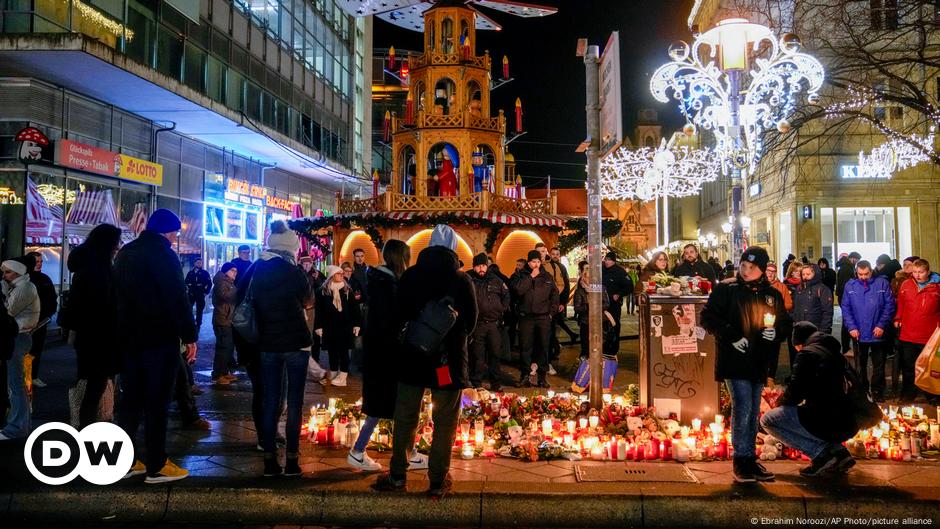German Interior Minister Nancy Faeser has urged the swift adoption of draft laws to bolster internal security.
The deadly attack on a Christmas market in Magdeburg has raised questions about public safety and intelligence gaps in Germany.
“We must do everything in our power to protect the people of Germany from such horrific acts of violence. Our security authorities need all the necessary powers and additional personnel to achieve this,” Faeser told Der Spiegel news magazine.
Following the Solingen knife attack earlier this year, lawmakers tightened gun laws and strengthened security authorities’ powers.
Faeser, however, said further legislative changes were blocked by her Social Democratic Party (SPD) party’s former governing coalition partner, the Free Democrats (FDP), the opposition Christian Democrats (CDU) and the CDU’s Bavarian sister party, the Christian Social Union (CSU).
“All of these bills could be passed immediately if the [CDU and CSU] and FDP did not refuse to do so,” she said.
The measures include a new Federal Police Act, designed to strengthen the federal police, and the introduction of biometric surveillance.
FDP General Secretary Marco Buschmann cautioned against hasty actions.
“Our task is to support the victims and their families. Competing for symbolic measures would not do justice to the terrible situation,” he told Der Spiegel.
Germany will hold a federal election in February. Domestic security is likely to be an important issue in the campaign.
Bernd Baumann, the parliamentary head of the far-right AfD, called on Chancellor Olaf Scholz to convene a special session of the Bundestag regarding the “desolate” security situation, stating that “this is the least we owe to the victims.”
Meanwhile, the head of the far-left BSW party, Sahra Wagenknecht, demanded Faeser explain “why so many tips and warnings were ignored beforehand.”
The CDU and FDP called for enhancements to Germany’s security apparatus, including improved coordination between federal and state authorities.
















